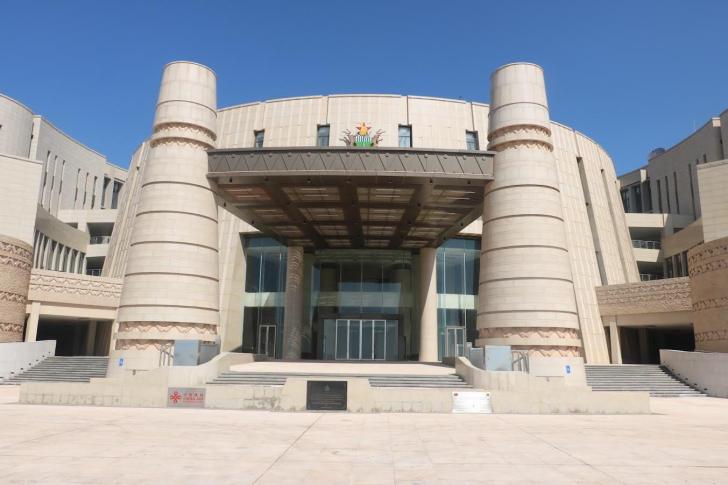News / National
Whipping system in Parliament silencing Matebeleland MPs
29 Jul 2025 at 07:32hrs |
0 Views

The parliamentary whipping system employed by Zimbabwe's political parties is stifling the voices of legislators from the Matebeleland region, contributing to the region's continued marginalisation and underdevelopment, former Pumula MP Albert Mhlanga has said.
Speaking during a virtual discussion hosted by the Bubi Community Parliament on Saturday, Mhlanga, who also served as Bulawayo deputy mayor, said both Zanu-PF and opposition MPs have been unable to effectively raise key issues in Parliament due to the restrictive nature of the whipping system.
The discussion focused on the responsibilities of Members of Parliament and questioned whether the current system enables them to fully represent the interests of their constituencies.
Mhlanga highlighted a controversial incident involving former Magwegwe MP Felix Magalela Sibanda, who attempted to bring a motion on the Gukurahundi atrocities to Parliament without the formal consent of party leadership. According to Mhlanga, Sibanda was met with hostility from his MDC colleagues and was later reprimanded, while ruling Zanu-PF MPs ironically applauded the disruption.
"The whipping system was introduced in the UK in the 18th century as a way to ensure MPs adhered to party policies," said Mhlanga. "But in Zimbabwe, it has been weaponised to silence debate, particularly on issues affecting Matebeleland."
He claimed that during his time in Parliament, MPs who attempted to raise concerns related to Matebeleland – including long-standing grievances over Gukurahundi – were penalised or silenced.
"The chief whip knew Sibanda was supposed to move the motion, but deliberately denied him the opportunity," Mhlanga said. "When he tried to table it, he was heckled by his own party members, and the motion was ultimately blocked."
Mhlanga further alleged that MPs from Matebeleland, though privately supportive of the motion, remained silent due to fear of reprisal from party leadership. He pointed to a broader culture within political parties where dissenting voices are disciplined through recalls or internal sanctions.
"It becomes a question of how to represent the people without angering two or three powerful individuals who control the party," he added. "Many MPs are recalled not for wrongdoing, but simply for voicing the concerns of their constituencies in a way that clashes with party policy."
The Gukurahundi massacres, carried out by the North Korean-trained Fifth Brigade in the 1980s, remain a deeply sensitive issue in Zimbabwe. President Emmerson Mnangagwa's government has since tasked traditional leaders with conducting public hearings, but the process has been marred by fear and low participation amid concerns of possible victimisation.
Critics have also raised concerns that the national healing process is incomplete, with affected areas in the Midlands reportedly excluded from the consultation framework.
Despite the government's pledge to resolve the decades-old issue, Mhlanga said the continued silencing of voices in Parliament, especially those from Matebeleland, suggests that the path to truth and justice remains blocked.
"After 45 years, the Gukurahundi issue is still being mishandled," he said. "Until MPs are free to speak on behalf of their people without fear, meaningful change will remain elusive."
Speaking during a virtual discussion hosted by the Bubi Community Parliament on Saturday, Mhlanga, who also served as Bulawayo deputy mayor, said both Zanu-PF and opposition MPs have been unable to effectively raise key issues in Parliament due to the restrictive nature of the whipping system.
The discussion focused on the responsibilities of Members of Parliament and questioned whether the current system enables them to fully represent the interests of their constituencies.
Mhlanga highlighted a controversial incident involving former Magwegwe MP Felix Magalela Sibanda, who attempted to bring a motion on the Gukurahundi atrocities to Parliament without the formal consent of party leadership. According to Mhlanga, Sibanda was met with hostility from his MDC colleagues and was later reprimanded, while ruling Zanu-PF MPs ironically applauded the disruption.
"The whipping system was introduced in the UK in the 18th century as a way to ensure MPs adhered to party policies," said Mhlanga. "But in Zimbabwe, it has been weaponised to silence debate, particularly on issues affecting Matebeleland."
He claimed that during his time in Parliament, MPs who attempted to raise concerns related to Matebeleland – including long-standing grievances over Gukurahundi – were penalised or silenced.
"The chief whip knew Sibanda was supposed to move the motion, but deliberately denied him the opportunity," Mhlanga said. "When he tried to table it, he was heckled by his own party members, and the motion was ultimately blocked."
Mhlanga further alleged that MPs from Matebeleland, though privately supportive of the motion, remained silent due to fear of reprisal from party leadership. He pointed to a broader culture within political parties where dissenting voices are disciplined through recalls or internal sanctions.
"It becomes a question of how to represent the people without angering two or three powerful individuals who control the party," he added. "Many MPs are recalled not for wrongdoing, but simply for voicing the concerns of their constituencies in a way that clashes with party policy."
The Gukurahundi massacres, carried out by the North Korean-trained Fifth Brigade in the 1980s, remain a deeply sensitive issue in Zimbabwe. President Emmerson Mnangagwa's government has since tasked traditional leaders with conducting public hearings, but the process has been marred by fear and low participation amid concerns of possible victimisation.
Critics have also raised concerns that the national healing process is incomplete, with affected areas in the Midlands reportedly excluded from the consultation framework.
Despite the government's pledge to resolve the decades-old issue, Mhlanga said the continued silencing of voices in Parliament, especially those from Matebeleland, suggests that the path to truth and justice remains blocked.
"After 45 years, the Gukurahundi issue is still being mishandled," he said. "Until MPs are free to speak on behalf of their people without fear, meaningful change will remain elusive."
Source - Southern Eye
Join the discussion
Loading comments…


































